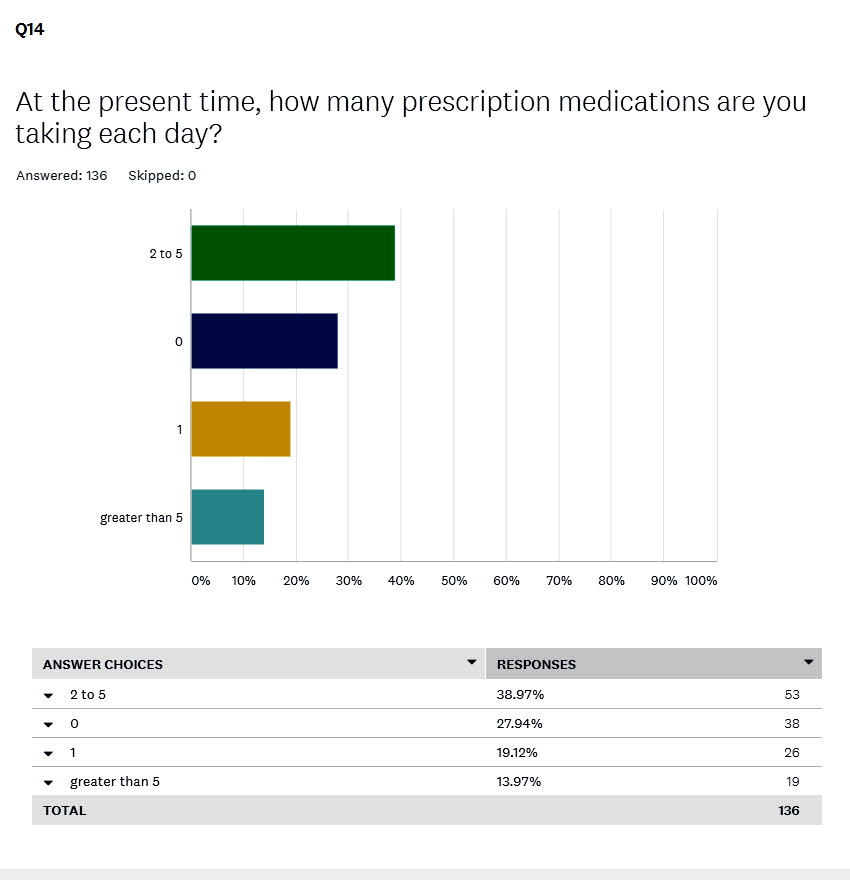Q. 14 - Current (Questionnaire day) Number of Prescriptions
LTCOVID.com
Thanks for visiting!
To translate this page, select your
language from the dropdown menu below:
In the previous question prescription medication use before becoming ill with "long-term" COVID-19,
was queried and revealed that most of this sample of respondents took none. The next most frequent response was "2 to 5 prescription medications per day."
How much did this illness change usage of prescribed medications?
In the question below, "at the present time" equates to the day that the questionnaire was completed.
So prescription medication usage of 2 to 5 per day became the most frequent response (39%).
This followed by 28% who still took no prescription medications.
Comparing those who took no Rx meds to Those who did, Before illness and on the Questionnaire Date, the Chi² value = 4,2048, p = 0,0403.
For those who took 2 to 5 Rx meds before distinct from others (i.e., not 1, and not >5), and those taking 2 to 5 Rx meds on D-Date, the Chi² value = 3,2483 and p = 0.071497, not quite significant.
For those who took 2 to 5 meds compared with 1 or >5 meds, before illness and on Q-Date, Chi²= 0,75967, and p = 0.3834, NS.
For those who took >5 Rx meds each day Before illness, and on Q-Date, Chi² = 4,9754; p = 0,0257, quite significant.
While these statistical refinements of the answers given may add interest and even insight, one fact would seem to loom large: These individuals, even taking into account increased numbers of medications during this illness, still have a duration of illness of 6.5 months on average.
What better proof that these medications, even at increased dosages from those taken before the illness for other reasons, failed to cure these respondents. A failure so pronounced that a term must now be added to qualify it. "Long term." That does avoid using the term "chronic," a word often associated with loss of hope for cure. But the message comes through. Prescription medications in increased dosages, don't bring an end to this variant of the COVID-19 illness.
This failure has certainly been noticed on both sides of the supposedly therapeutic relationship of patient and physician.
Do patients increasingly search outside of this usual allopathic formulation of care?
<<<<< Previous page
Q. 15 - Additional (non-allopathic) therapies >>>>>
A découvrir aussi
- Q. 16 - Nutritional supplements, including Vitamin D: use before
- Q. 27 - Confirmation: Tests that were negative for the viral illness
- Q. 35 - If quarantined, for how long ?

